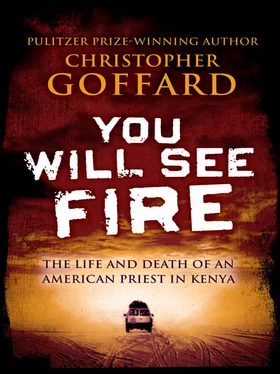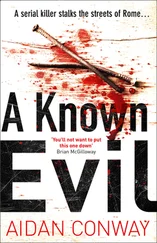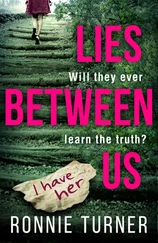AT THE CENTER of the insurgency was its loyalty oath Конец ознакомительного фрагмента. Текст предоставлен ООО «ЛитРес». Прочитайте эту книгу целиком, купив полную легальную версию на ЛитРес. Безопасно оплатить книгу можно банковской картой Visa, MasterCard, Maestro, со счета мобильного телефона, с платежного терминала, в салоне МТС или Связной, через PayPal, WebMoney, Яндекс.Деньги, QIWI Кошелек, бонусными картами или другим удобным Вам способом.
, which drew on—and bastardized—a long Kikuyu tradition. In earlier times, oath takers held a Bible in one hand and a pile of earth in the other; now, as the fighting intensified, Scripture was scuttled in favor of goat meat. At secret ceremonies, initiates would pass under an arch of banana leaves and strip naked in a symbolic shuffling off of their old selves. The goat would be slaughtered, a piece of its flesh ingested, its hot blood smeared on the bodies of oath takers. A series of vows was affirmed: Kill the enemies of Mau Mau. Never betray Mau Mau. Never reveal the oath to whites.
To the British, the oathing represented the atavistic savagery of their enemy, “ the most bestial, filthy and nauseating incantation Конец ознакомительного фрагмента. Текст предоставлен ООО «ЛитРес». Прочитайте эту книгу целиком, купив полную легальную версию на ЛитРес. Безопасно оплатить книгу можно банковской картой Visa, MasterCard, Maestro, со счета мобильного телефона, с платежного терминала, в салоне МТС или Связной, через PayPal, WebMoney, Яндекс.Деньги, QIWI Кошелек, бонусными картами или другим удобным Вам способом.
which perverted minds can ever have brewed.” To the Kikuyu, most of whom reportedly took it in some form, it was regarded as transformative, a rebirth, a thing of transcendent power: God, or Ngai, would visit death on those who broke it. In detention camps, the oathing flourished, sometimes accompanied by the promise that initiates would get a plot of land once the whites were banished. The oath was often coerced, and as the war dragged on, it came to involve the drinking of blood and the binding of initiates with goat intestines.
To reject the ritual meant one was too dangerous to live, a potential stooge. Kikuyu Christians, a minority, were especially vulnerable. Many refused the oath, not out of colonial sympathies necessarily, but because the Church portrayed the goat blood as a blasphemy, the satanic counterpart of Christ’s blood. Militants strangled obstinate Christians with blankets, slashed their throats with jerry-rigged blades, and—if they were suspected informers—cut out their tongues.
On his mother’s side, much of Gathenji’s family sided with the rebellion, but his father, Samuel, an itinerant carpenter, occupied the gray and dangerous zone of staunch Christians.
After serving with the King’s African Rifles in the battle against Mussolini in Ethiopia, where he had lost many of his front teeth, he had become a pacifist and an evangelist with the Presbyterian Church of East Africa. He preached at the pulpit and on the streets, anywhere he could find a crowd, and his themes were peace and reconciliation. He recited the story of the Good Samaritan and hummed “Nearer My God to Thee” when he walked.
He was a puzzle to his traditionalist, fervently Mau Mau in-laws. He had adopted the unswerving missionary stance against the genital mutilation of girls, which his in-laws clung to as an indispensable rite. He abjured old rituals, like spitting on your own chest as a blessing and offering goat sacrifices at the sacred mugumo, or fig tree. He rejected the notion that his wife, who had died as a young woman in childbirth in the late 1950s, had perished as a result of mistreating ancestor spirits, or, as her grieving mother insisted, by a curse placed upon her by a jealous neighbor.
He had a reputation as a consummately gentle man who avoided quarrels. When neighbors argued, they inevitably found themselves in Samuel Gathenji’s hut, seeking a peacemaker’s counsel. Still, he retained basic Kikuyu notions of child discipline and the importance of instilling obedience toward elders; he didn’t hesitate to raise the cane when young Charles came home muddy from fishing for tadpoles at the lake or had strayed beyond the compound into areas where so many hazards waited—colonial soldiers, settlers, feral animals, and Mau Maus, who were rumored to anoint children into their cadres by smearing castor oil on their faces.
Though he had no interest in politics, some fellow Kikuyus perceived Samuel Gathenji as an ally of the Crown, so deeply was Christianity associated with the establishment. The churches had helped to provide the Manichaean language of the struggle, after all. Through the detention camp’s loudspeakers, some missionaries railed against the evils of the rebellion, urging detainees to repent of their oaths and accept Christ’s salvation.
In young Charles Gathenji’s government-run elementary school, he and other children were tutored in the splendors of British civilization, made to memorize “God Save the Queen” and to recite the names of the royal family. They were taught the backwardness of Kikuyu traditions, from genital mutilation to the way one’s grandparents dressed. To Gathenji, the intended message was unambiguous: African ways are evil.
In the ongoing Mau Mau war, he was taught, virtue resided solely on the colonial side. In civics class, teachers posed the question “Who are the enemies of your country?” The boy dutifully recited the required answers: rebel leader Dedan Kimathi and Jomo Kenyatta, the alleged mastermind of the revolution. Kenyatta was feared by settlers across the continent, and described by one governor of Kenya as “an African leader to darkness and death Конец ознакомительного фрагмента. Текст предоставлен ООО «ЛитРес». Прочитайте эту книгу целиком, купив полную легальную версию на ЛитРес. Безопасно оплатить книгу можно банковской картой Visa, MasterCard, Maestro, со счета мобильного телефона, с платежного терминала, в салоне МТС или Связной, через PayPal, WebMoney, Яндекс.Деньги, QIWI Кошелек, бонусными картами или другим удобным Вам способом.
.” In reality, he was a moderate with little sympathy for the Mau Maus. His imprisonment—on evidence now accepted as fabricated—did not have the intended effect of decapitating the movement. Instead, it transformed him into a living martyr and created a power vacuum into which militants swarmed.
The rebellion was crushed, but the nerve for continued occupation had raveled. In the summer of 1961, his cult having grown during his incarceration, Kenyatta was released. The man portrayed as the country’s greatest enemy would soon be its first president. Gathenji stood with the masses when he came to Kikuyuland to speak. Thickset, with his gray beard and resonant voice, Kenyatta was the most eloquent man the boy had ever heard. Speaking in English and Gikuyu, defying calls for vengeance against those who had taken the colonial side, Kenyatta talked rousingly of harambee—transcending ethnic divisions and coming together as members of a single, self-governing nation. He urged the Mau Maus to come out of the forests. It was time to prepare for independence.
Читать дальше












